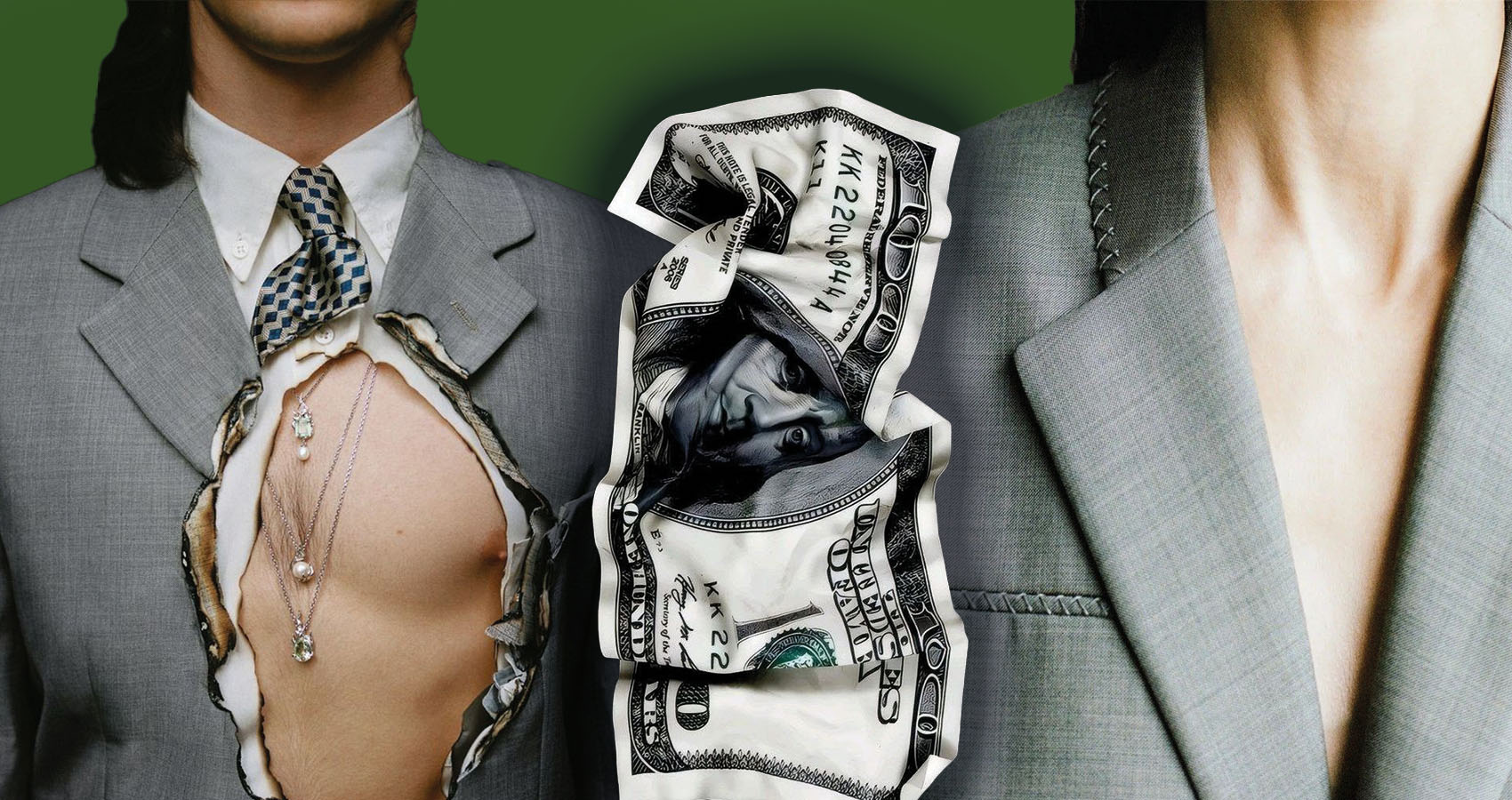
Can Fashion Really Prophesize The State Of The Economy?
Recession indicators? really?
If you have any sort of media access, especially one that interacts fashion, you might’ve found yourself in the depths of something that feels a little too economical to be fully fashion-orientated; you might be seeing people explaining recent fashion trends as recession indicators.
Now, what does this mean? People are looking at popular clothing to tell us whether we’re entering a pit of economic recession. Well, where else are we supposed to look to since trying to find answers from politicians’ mixed signals has become a bit of headache? But do we really need to observe the clothes we’re wearing to know if we should start saving pennies?
Theorising about trends

The idea behind this is that when we are preparing to enter a recession, there are indicators in fashion, which try to glamorize the situation. We make clothes that would better prepare us for monetary misfortune, trendier, as they’re more accessible to those fighting against their wallets. And, naturally, the clothes which are worn by the majority are looked at with kind eyes, and adored as a new trend.
There are specific items of clothing that appear as true indicators of economic hardship. Things like skinny jeans (they’re less fabric, so cheaper to make), and workwear (to romanticize the workforce) see a rise in popularity as the economy falls. This is happening now, and has happened in the past – think back to the fashion which was stylish around 2008.
Higher-order Hemlines

Another noteworthy theory on the matrimony of fashion and finance is The Hemline Index: the idea that when the economy is booming, the hemlines are shorter, and when we’re in a recession, the hemlines get longer (we tend to dress more modestly because we’re upset when we don’t have money – or at least that’s the general gist). Think about the differences between styles in the USA in the 1920s and the 1930s. The 20s saw flappers with short skirts and dresses allowing for freedom to dance and party. Whereas when the country entered the Depression, hemlines grew longer, as no one could afford to party as often as they did before.
And as we all know, history itself. This summer, my friends and I seem to be choosing longer skirts and dresses over minis. This could partially be because we’re all sick to death of having our bums hanging out after the invasion of the mini from last year’s BRAT obsession. Or maybe we’re just growing up! But according to the hemline index, our urge to choose a longer length is a serious indicator of financial trouble.
So, do examples like these really indicate that we’re entering a dark pit of financial loss?
Is fashion really fortune-telling?

As interesting as this idea is, I can’t help but be a bit skeptical. Are these trends really warning signs that we need to prepare to enter the depths of debt? Or are we simply trying to justify natural changes in fashion for no reason?
Just because there may be a correlation between how long our skirts are, and how tumultuous the economy is, doesn’t necessarily mean that these trends are caused by the economy. There is bound to be a bit of crossover between the two worlds, but that doesn’t have to mean that fashion is completely ruled by the economy. We don’t only like things because they make financial sense; there is more to it. We have tastes, we have hearts, and we have souls; we don’t just have funds.
There are so many other reasons why these items might be trending. Yes, the last time we saw them this popular may have been around the 2008 recession, but fashion is known to cycle every 20-or-so years (so the resurgence of these trends is right on time). As well, it might not be the lack of fabric which makes skinny jeans more appealing, it’s probably just because we can’t make our precious baggy jeans any baggier – we’ve hit the limit! So, to restore peace, we must oscillate back to skinny jeans.
Do we need to justify everything?
When we have this much knowledge at our fingertips, it becomes too easy to answer any imaginable question without understanding the solution (which we would if we found it out for ourselves). We have got into the habit of saying shallow things to make us seem like we understand something that we actually don’t. And from this, we try to justify everything with a new theory. Why? Do we have to explain every possible curiosity with a long-winded theoretical answer? Is this really better than no answer at all?
In a time where the internet allows us to gain pseudo-expertise on any topic of which there is a rabbit hole to fall down, we can too easily find ourselves claiming to know more than we do. Is the trend of exclaiming that the midi-pencil-skirt you’re wearing is a recession indicator just us grasping at straws to appear up-to-date with the latest economic trends? Besides, if we are entering a recession, shouldn’t we be worrying about more than just how our fashion is confirming our bleak fate?
We should accept the trends for what they are, trendy, not prophetic.











